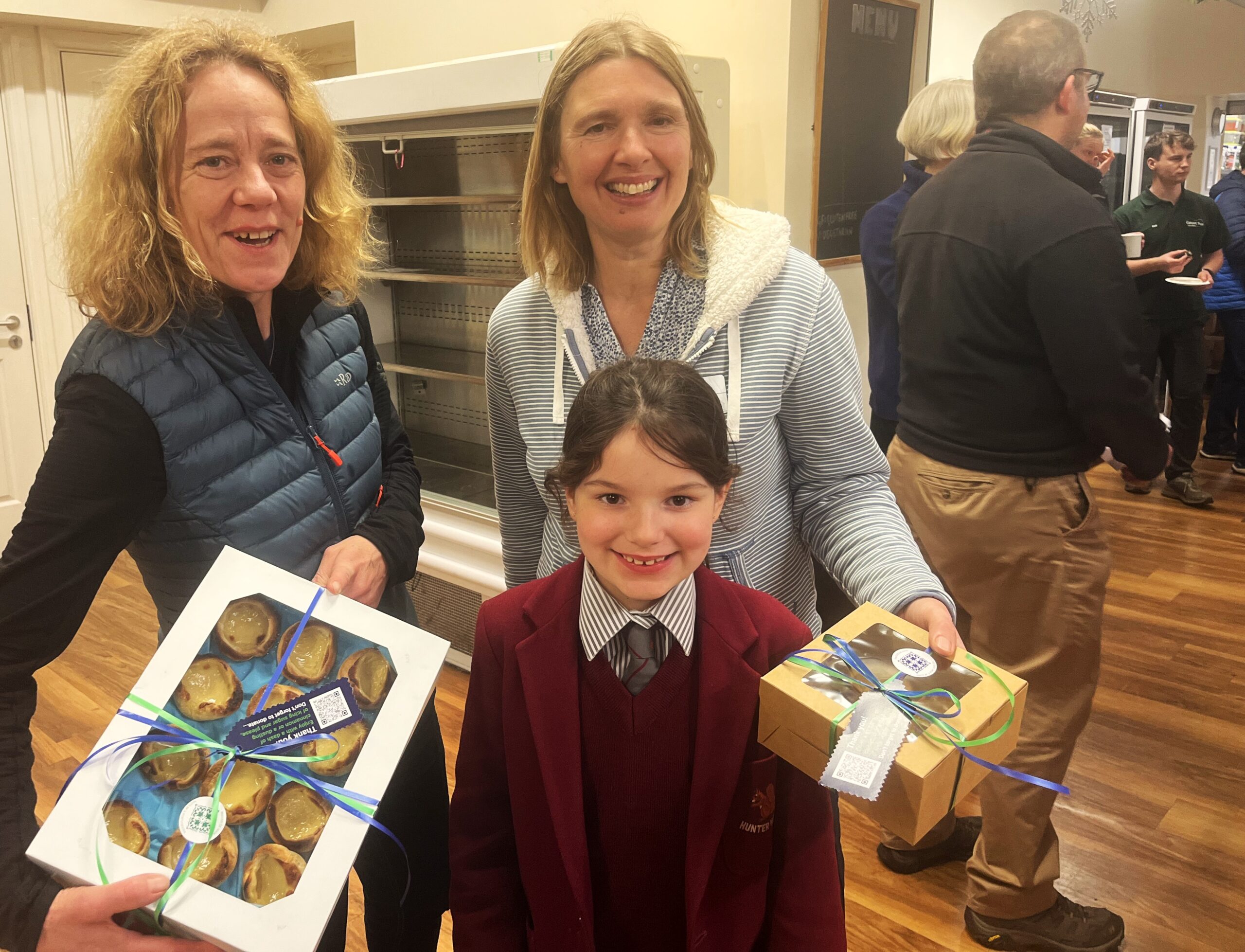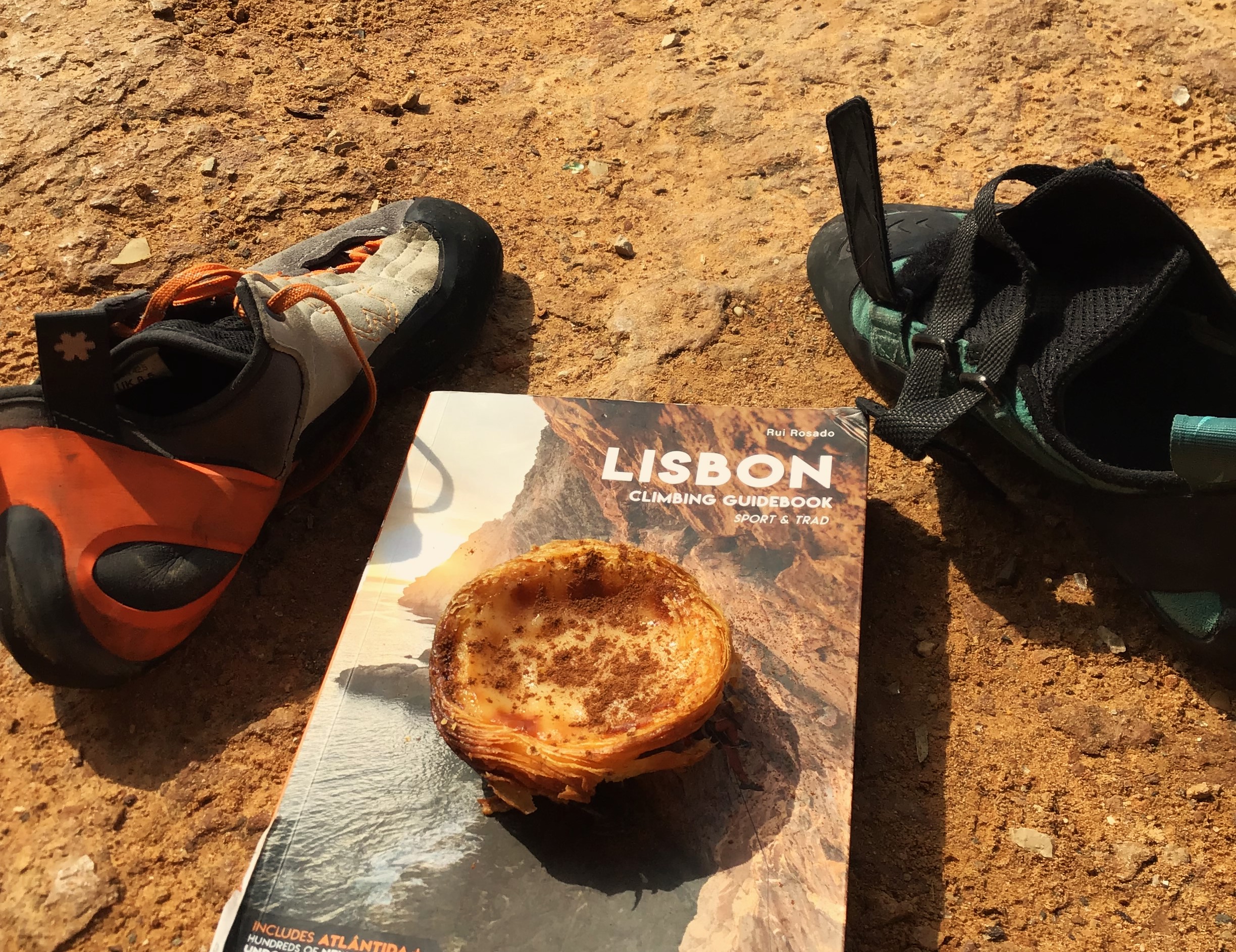A Cumbrian-based father-and-daughter team set themselves the daunting task of baking a hundred Portuguese Pasteis de Nata Custard Tarts Pasteis de Nata, to raise money for a local charity – The Calvert Trust.
Portuguese born Ciso Barbosa had heard that The Calvert Trust needed to raise £32,000 to pay for an additional instructor. Wanting to help, he thought he could use his culinary skills to bake and sell Portuguese custard tarts. His daughter Sibella (8) was also keen to join the efforts, so she put on her apron, rolled up her sleeves and got busy in the kitchen. For four days, tray after tray went into the oven, then the delicious pastries were lovingly boxed and hand-delivered to the people of Keswick, who were eager to have a taste.

Sibella tells us:
“We started out wanting to make 100 Nata and hoped to raise…maybe £200. In the end, Dad and I made 290 tarts, delivered to 50 wonderful friends and family”.
Being perfectionists in the kitchen, Sibella and her dad only allowed the best of their pastries to be sold; some rejects had to be eaten at home during the process! There were plenty of good ones though and they made a whopping £1200, which was matched by the BIG GIVE, raising the total to £2400. Their contributions represented 7.5% of the total funds needed at the Calvert Trust and we think they should be very proud.

Who are the Calvert Trust?
The Calvert Trust is a specialist residential centre, offering a range outdoor pursuits activities to people with disabilities. Set in the beautiful Lake District, their friendly instructors provide a safe and supportive environment for individuals, families, and school groups, so that they can experience everything the Lakes has to offer. Fund raising efforts, such as this one, are what keep the centre going, allowing them to keep offering exciting activities to those who may not often get the opportunity.

A brief history of Portuguese Custard Tarts
Anyone who has been to Portugal is likely to have tried one of their custard tarts, or Pasteis de Nata. Shortly before the 18th century, many monasteries and convents were using vast quantities of egg whites to starch their robes. Rather than waste the leftover yolks, they used them to make a range of sweet pastries and this is what led to the custard tart becoming a quintessential part of Portuguese confectionary. It was the monks at the Jerónimos Monastery in Lisbon who were first credited with developing the original custard tart recipe, though this sweet treat only gained notoriety after production started at an adjacent sugar refinery. The sugar-cane factory in Belem that produced them stills remains today and the recipe is a closely guarded secret. This is why some will say that you have only had an authentic Portuguese custard tart if you have eaten a Pasteis de Belem, which can only be purchased in the town itself. Today, the Jeronimos Monastery is a UNESCO World Heritage Site and the lovely café at the factory sells thousands of custard pastries every year, to visitors from all around the world. If you choose to visit, you will smell the aroma of caramelised custard wafting through the streets.

Above image: Our Steve enjoying his Pastéis de Nata, whilst rock climbing around Lisbon, Portugal.
Many thanks to Sam Bunting, who kindly provided us with the photographs.
Archipelago Choice Portugal specialists
We specialise in tailor-made holidays to Portugal. Call now on 017687 721070 to begin planning your own personalised trip.








Follow us online